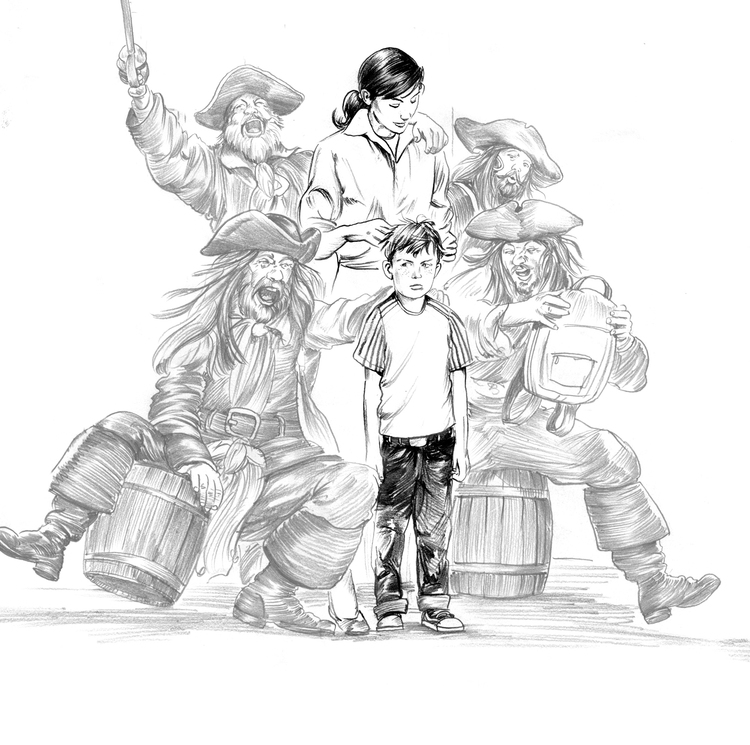 |
| A Pirate’s Guide to First Grade |
Well, that’s the most important question and the hardest to answer properly. The reason for this is largely because despite what your peers at school might holler for, there really is no absolute public line to define what selling out is. It’s a personal bar and unique to each artist, period. Not achieving some predisposed idea of what others think you should achieve, doesn’t count. No one can export their private line of where selling out starts to you or anyone else. Put simply: No one gets to tell you that you sold out. You’ll know. If they do, they’re wrong by definition. But because they may be friends or colleagues, they may help you see it right, even if it doesn’t matter where they think the line is. They can alert you to avoiding an error you might not have otherwise seen early enough. So it’s always a good idea to make sure you take it seriously ask yourself if it’s true and then decide for yourself if it is or isn’t. Your the Captain of this particular ship and everyone else is Tenille. Never forget that.
For me, now at 45 years and more than 20 in the business of making art for a living, my line is the point
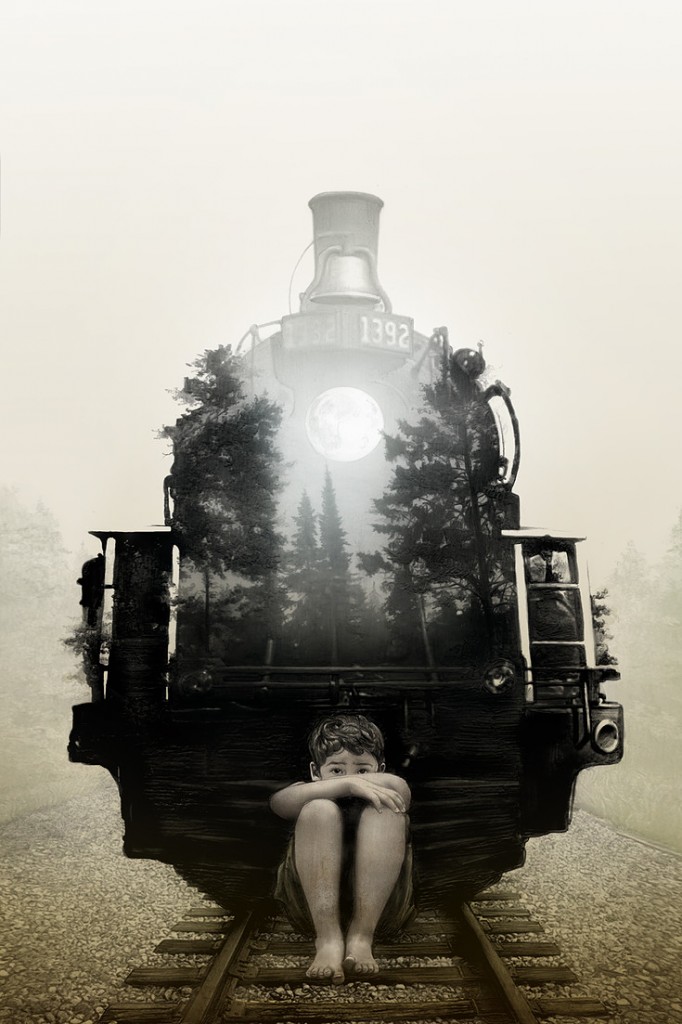 |
| Where the Trains Go for Tor.com |
when I decide to do a project only because of the money- meaning there are no other benefits or joys to be found in the project- and I don’t need the money as a necessity. Happily I have yet to be in a financial place where taking or not taking a job comes from not needing the money. I have a mortgage, two kids and bills to pay and that more or less negates a circumstance I can’t justify to that primary obligation. In a way, it makes it easier for me- no less thrilling when I need to take a job to pay bills alone, which I have done and will do again I am certain. My kids, wife and home require I have to swallow a lot of my youthful idealism for their sake and I am more than happy to do that because you can never sell out when you honor your primary desires/obligations. So yes, it’s a cheat. But it doesn’t make taking on work I would have otherwise avoided any more palatable, it just makes me feel better because there was a good reason to eat that particular crow.
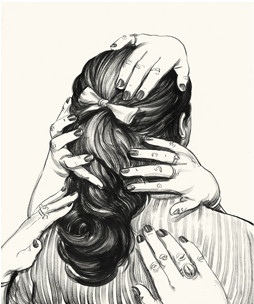
Though I remember from the soft womb-like purchase of college to look down my nose at anyone who put a price tag on their art as selling out. Clearly I was a privileged idiot, and to be fair many of us were then and in those places still are. It’s an easy place to throw stones like that because you aren’t yet having to deal with the real world consequences of being a true grown-ass person. You need skin in the game if you’re ever going to be so hubristic enough to declare someone else has sold out, and as we can all agree, most of the time no one is in such position to own the tidal wave of this particular criticism.
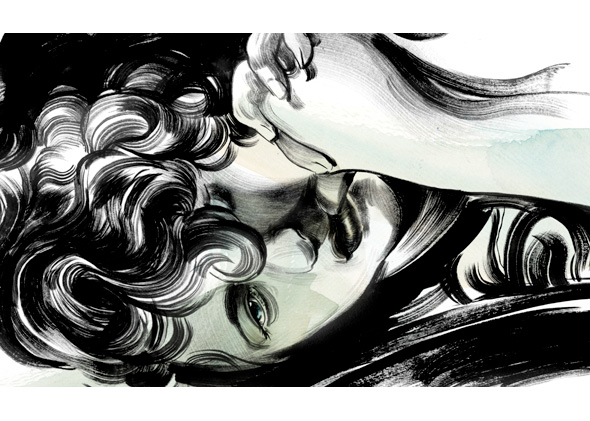 |
| Barbara Stanwyck for Slate |
Back when I was in school it was Pearl Paint- which is where we all ended up for a time as your crappy post-school job to eat food and pay rent with. But that place is gone with the old New York, and everyone knows Starbucks is that place for many of us now. Full disclosure. So what is the Starbucks Conundrum? I’m glad you asked because I just now made it up: it is the circumstance wherein a true artist is working at Starbucks, or a like minded job, and keeping their art “pure” by keeping it out of the market place. Which I admit entirely is wholly fair and noble if this is your thing, and not just a coping tool to justify not being able to live off your art. Many of us have day jobs and dance our art dance after or before, and that is entirely great as a way to live. Not everyone is equipped for the roller-coaster hellscape of living a freelance artist’s life, nor should they be. I look with great envy on people with daytime jobs and steady incomes and a sense of stability and order in their lives, so I am not blowing smoke up your butts when I say this- I mean it. But many times, in my experience, this lifestyle is held up as more noble than making your income via your art and making sculpting your work to that need in order to keep it all going. The easy counter punch is to challenge the “pure” artist with their choosing to compromise their work by keeping it caged and away from the real hard world for fear of it being tainted. That art is a hothouse flower and if it can’t be strong enough to survive in the world with all it’s pressures, it’s likely simply not very good. But the reality is, like I said before- it’s only true if it’s true for you. Both scenarios are entirely legit and noble. We all have to eat and live and pay for things, and whether we do it via our art or not is no one else’s business but our own. Just make sure you own that choice and if while reflecting you find it is not the right choice, then that’s fine too. It’s only selling out if you don’t do anything about it.
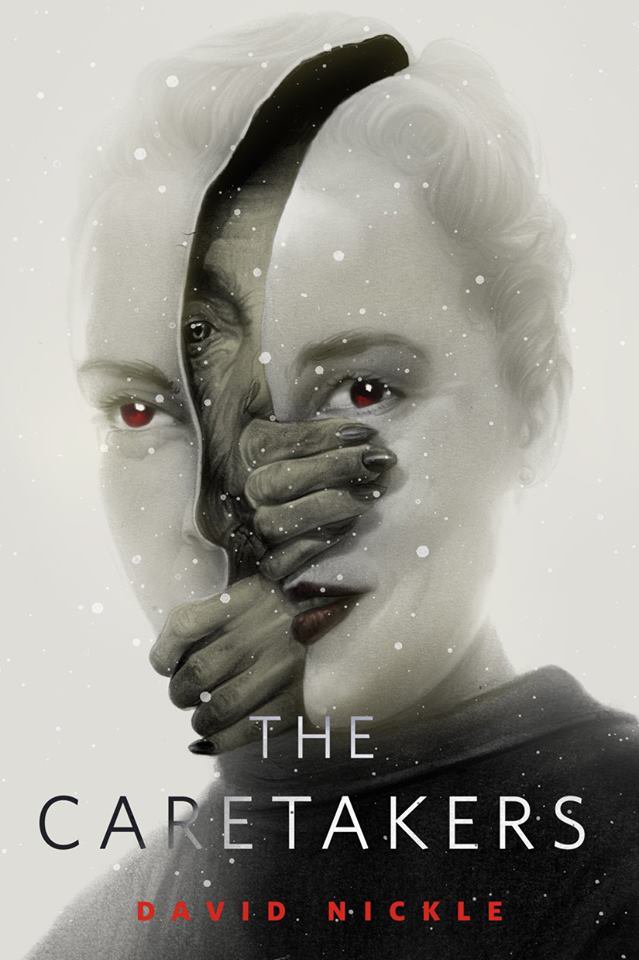 |
| The Caretakers for Tor.com |
One of the great songs sung proudly by the young idealist artist is the one that poo-poos all compromise as evil and the trickery of the devil luring you to your doom. Your art is corrupted if compromise, your life is too. This is a clearly extremist position to take, though one taken by many many more than you or I would prefer. It may be a good self-justifying line of thinking if your in the Spanish Inquisition, The Taliban or Daesh, or Westboro Baptist Church, but it is no good being an extremist with your art. The reason for this relies upon this one simple truth: all art is at the moment of it’s inception, a compromise. That idea, that notion or feeling you need to express through art, in it’s pure form is not a painting, dance, movie or novel- those are the clothes it dons to express itself. They are the modes by which you bring down from the ether and make physical for others- because it ain’t art unless someone else gets to see it. So given that, any post-partum extreme seeking of purity is laughable as building the barn-door long after the horse ran away and got married in Topeka. The simply truth is the more you interact publicly with your art, the more compromise you invite. You have a successful gallery show that sells well or out? You will be compromised to think along the lines of duplicating that event by revisiting that work that sold. Your Gallery will all but insist on it, and the money and praise in your pocket will insist even louder. Make your work alone in a studio like a hermit and die before anyone has seen it? You are compromised by whatever terrors or ideology that kept you from the conversation of art which is so important to make us better artists. Denying input is like turning away food for the art-soul. You are doing your babies no favors by hiding them from the world. Are they safe from harm? Of course not, but no reward will come without the risk required to lure it.
 |
| David Lynch and his Mother’s Sister’s Cousin |
There are good and bad forms of compromise of course. The bad is best illustrated by a story Lou Stathis once told me about a friend who was struggling to make ends meet writing his stories that he loved to tell, and took on a job writing porn novels to pay the bills. They were silly and stupid and it turns out he was good at it and it paid amazingly well. So he did this and did it again and again, writing his own work less and his job work more. While he saw that crash coming and was aware of it as a concern, he missed the one that really felled him: After three years of writing erotic fiction in the way he had to, he compromised his own craft so much that he ruined his writer’s voice for anything else. He killed his art through that compromise and found himself in a worse place than he would have been had he chased a job at say, Starbucks. A long shift at Starbucks might make you too tired to give your work the time and energy it’s due, but it isn’t so much similar to your art that it eats it like a cuckoo in someone else’s nest. Unless your art is making coffee in which case I might encourage the erotic novel path. The good kind is what happened to me doing Conan- a book felt unprepared or trained for, which utilized characters and stories I had not previously given two poops about, and was sometimes a bit too unrepentantly sexist for my tastes. Doing Born on the Battlefield changed me and it changed my art. But not in a bad way. I learned through doing it, how to tell a comics story I would never have otherwise taken on myself. It forced me out of my comfort zone and made me scramble to survive and excel in a world wholly unfamiliar to me. Kurt taught me how to write a script and elucidate a narrative in comics in a way that I still use today. Without having done Conan, Ethan Hawke would not have found me to do a book together and there would be no INDEH. That’s the kind of compromise we want, even if like me at the time, I wasn’t sure that’s the kind I would get. What I thought was I being lured into the porn-novel trap, but I ended up being trained by Obi Wan. You can’t always see the Kenobis coming, but you’ll never risk finding them by accident if you don’t take the chance. Remember selling out requires permission, and even if you find yourself in a bad job, it can end, or you can leave it. Staying is a choice. Doing it again is a choice. It’s your choice and no one else’s so make the best you can at the time, and then fuggitaboutit. Regret is like Marcellus Wallace’s pride: it only hurts, it never helps.
 |
| Alabaster cover for Dark Horse Comics |
I work on projects that are my own and I work on those for others. For my own I make personal choices and compromises to reach whatever goal I set out for myself for the project. When I’m working on another’s book cover, well my goal is to achieve what they need for the purpose of selling the book. You can swim in both streams without corrupting the other, and the lessons learned from each can be essential to both. Through my own work I find and discover what I love to do and make. Working for others teaches me how to see my work through other’s eyes, and teaches me how to advocate for it and be critical of myself. I will go even further to say both of these experiences are essential to being a growing successful artist. You may not need to do them in this exact way, but as long as the lessons can be learned, learn them. These compromises prevent you from selling out. The commodification of art is always tricky and it warps by its nature how we see work. Every path is different and each circumstance will change. it is a tricky greased snake you can and should learn to hold, because unless you can enjoy a healthy trust fund, you will have to learn how to do this right. Even if you don’t have to, you will want to and I guarantee an artist whose traversed the professional world to find their true voice will always accomplish vastly superior work to those who never dared try to suffer that world. Working at Starbucks or selling your work can each be equally terrible choices if you aren’t making them in the right manner, but neither are inherently evil. An artist should open themselves to any possible path or experience in order to remain an artist.
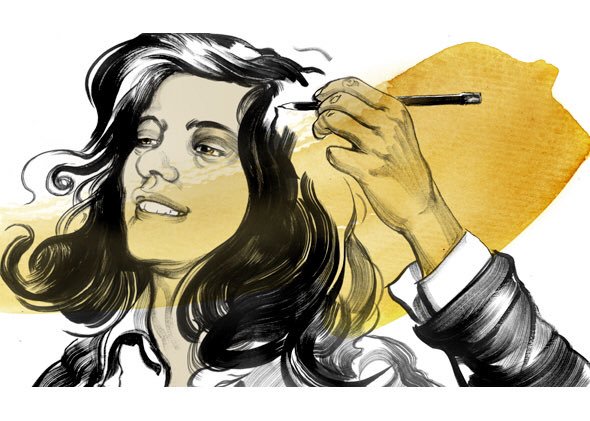 |
| Susan Sontag for Slate |
Well it may be impossible to do so purely, and that’s a good thing. Otherwise you’re a veal calf, sweet and tender but never free to feel life and gain a few scars and toughen up through the challenges of experience. My advice is to put the goal of ideals far out enough in front that it is never lost to minor course corrections or wrong turns in the short run. It’s like how they teach to keep the car steady in driver’s school: put your eye on to the furthest horizon and you will steer directly to it. Keep your eye ten feet in front of the bumper and you will swerve around like a drunken sailor on the highway and probably crash someplace. Paying attention to each and every moment that teases you to sell yourself out is not how you avoid it. That makes every mosquito into a tiger- keep them small and bitey and slap em down when they bite, but keep enjoying the walk through the woods. Be aware enough of your own personal ethos as an artist and let that change and grow as your life will and should inevitably change and grow. Loyalty to self ends appropriately when you’ve another to work for. Be cool with that and let your nobility bar adjust accordingly. The goal of every artist should be to make some great work throughout the course of your life, not try to make every work great. That isn’t to say you shouldn’t always try your best- no need to be a hack- but if you are truly growing and changing and experimenting, you will screw it up as part of that learning process. Be cool with that. Eyes forward and let it roll past. The only true selling out is when you self-limit what you can achieve through art by making poor, compromising choices, and repeating them on purpose. Don’t ever let anyone tell you where your bar is- it will be different and should. Your goals and ideals are your own and are noone else’s to decide and formulate. Risking failure is the only way to assure success, whoever it looks whatever shape it takes. The rest takes care of itself as long as you keep your core whole and flexible and at least a hundred yards down the road ahead of you. Anyone who tells you differently wants you to bend to their ideals, and doing that is the worst kind of selling out.
Ultimately I can tell you from both experience and witnessing this in others: it is FAR better a thing to have done good work you are proud of and never really see the art side of your job-career blossom than to have sold out your work to make a business out of it. Some folks are craftspeople and do this as a job and that’s fine entirely- I’m speaking for those who put their art-hearts into their work. That’s a tender commodity that you need to make sure to defend and honor.


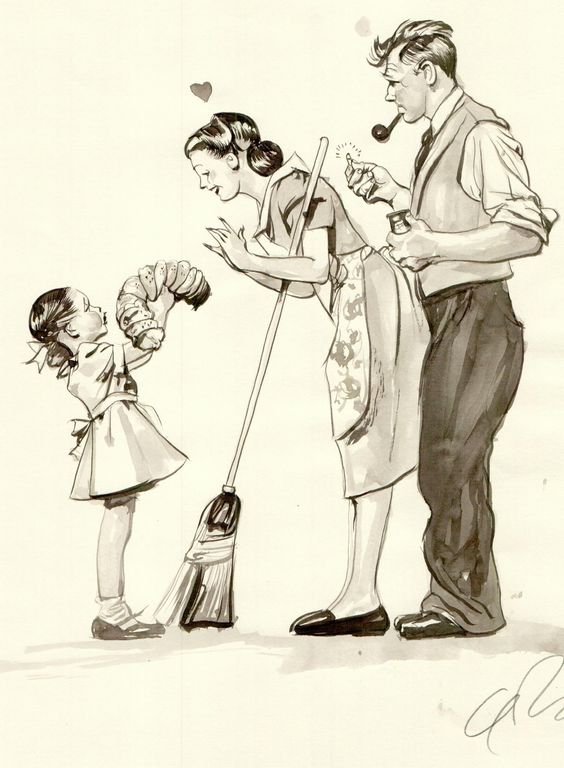
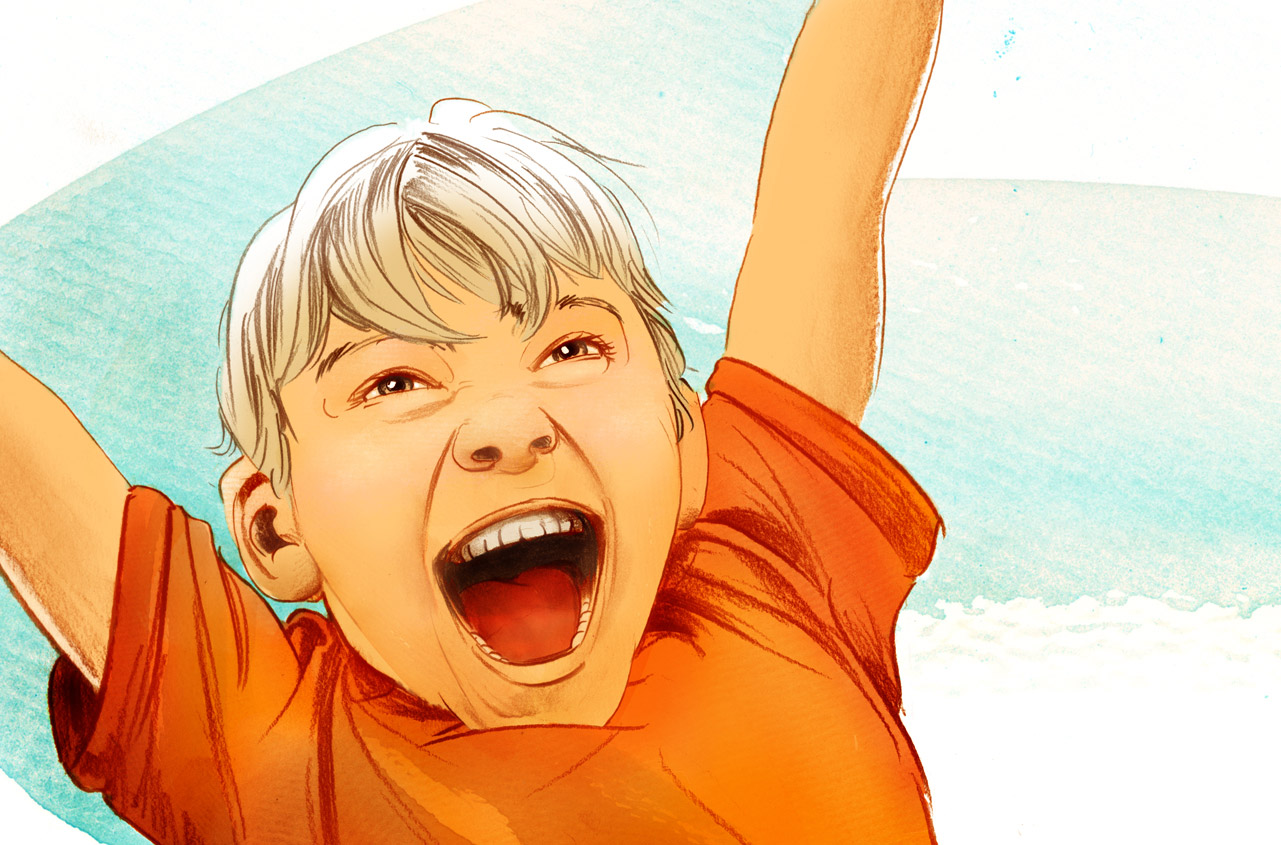
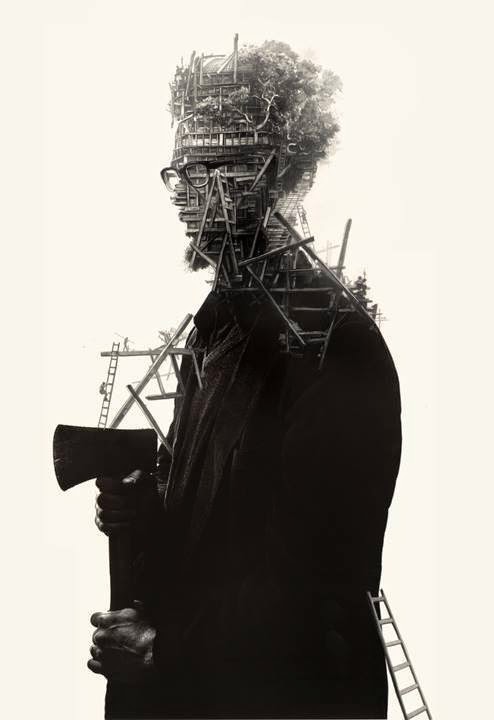
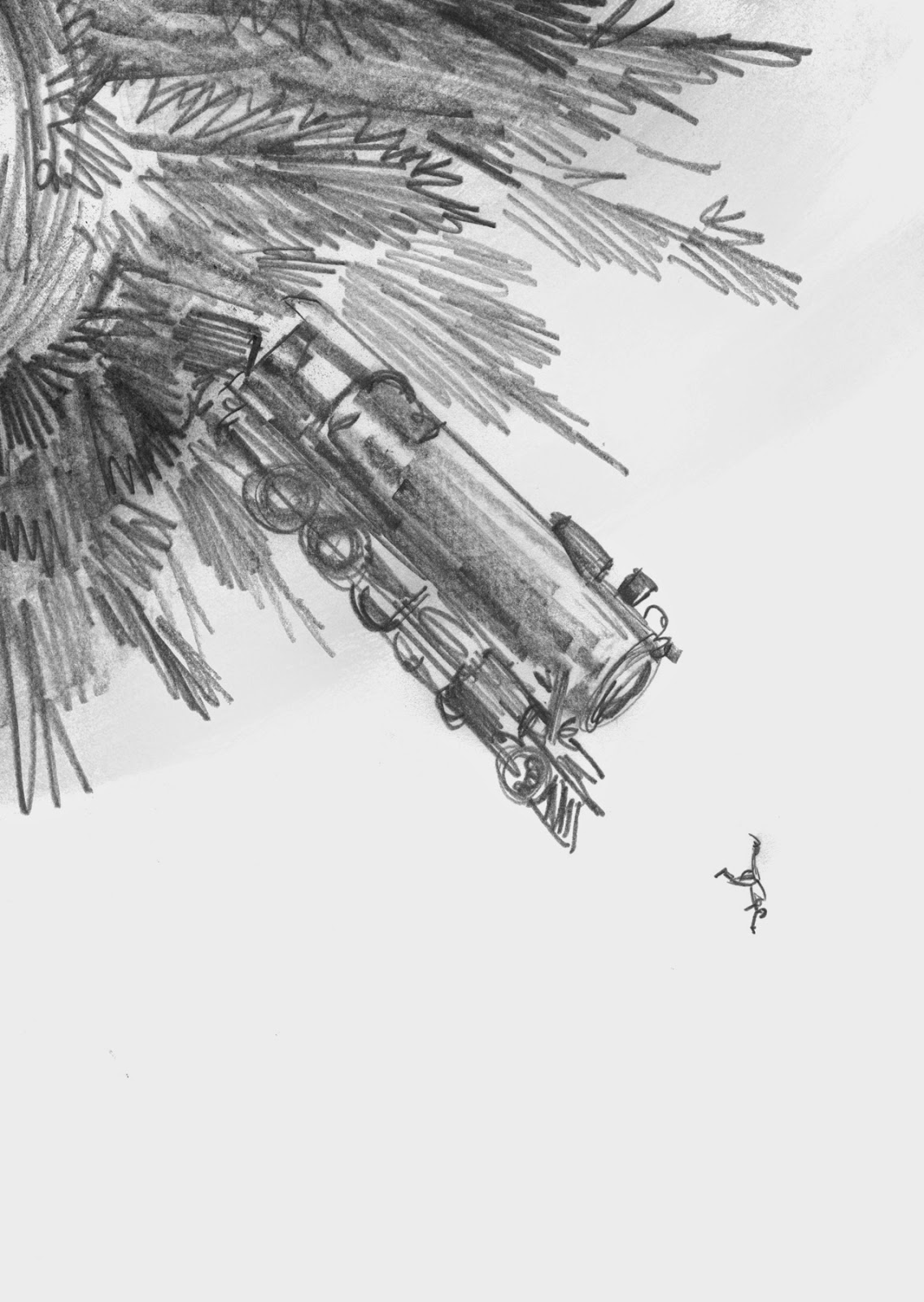
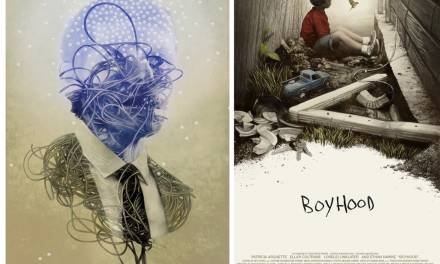
Greg,
This is so well thought-out and reasoned that the only reason I can assume as to why there aren't a flood of comments already is because there's so little left to say.
This is such an even-handed and mature look at the reality of the marketplace of art that I'm bookmarking it to come back and read it again multiple times.
I can relate to having my perspectives change as my life has changed. Moving from a single life with single focus to having a wife, baby, and involvement in my community and church means that my art is not just a passion, but a necessary income to provide for my family.
I like your point especially that it's one thing to do less-than-meaningful art that you're good at for money in order to make ends meet and make a living versus doing art that directly conflicts with your morals and beliefs simply to make a buck.
Lots to digest here and I'll try to post again after I've read it for a second / third time.
Great stuff!
-Bret <><
http://www.bucktoothstudios.com
Fantastic, Greg.
So many of my experiences are described right here in this post. Thanks for this, and the chance to reflect on where I am now.
Thank you! I had to to take a job as a Framer and Acrylic instructor at Michaels to make ends meet in the last year, and have been conflicted in concerns if I “sold out?”
This artical was really helpful towards my feelings/insight recently that told me, I needed the shitty job to show me how much I NEEDED my art at night. I know one day I will get the work I want, but until then I know I was a “grown ass person” who was flexible, and open to let opportunities come in naturally. Until (if ever) I get the passionable work I seek professionally.
Awesome post Greg.
http://Www.Jacob-A-Sweet.com
Thanks everyone- I'm glad this is ringing the right bells. This is one of those struggles in making art that never goes away, and honestly, gets harder to win against with each passing year. When I was 22 and out of school living in a Brooklyn apartment (when they were cheap) with my girlfriend, sheet-rocking walls for rent, it was easy to pass on compromised jobs, but easy to roll with them too. The stakes were lower, the overhead cost of life was lower. Now with kids and a house and car payments and everything else, each job feels far more serious and infinitely more consequential. I am not as much an unknown so my faceplants are public in a way they never were before, and the pressures from success to misunderstand the lessons and chase sameness are stronger too. There is no working creative out there whose heart is in the game that is not right now going through this in some form. It is a universal bond we all share and it's kind of nice for that- none of us are alone and lessons from each other can be life changing and work saving.
Great post- Thanks Greg!
Great post Greg, very thoughtful and wonderful getting to finally meet you at SDCC. Until next time. 🙂
This was a thoughtful and encouraging post. Thanks Greg!
I agreed with a lot that your points about selling out and found it heartening, however, I have to say, personally, that I thought what you wrote about doing a shift in Starbucks was a bit naïve, but it is from your personal observation. However, I wouldn’t look too enviously at artists in these jobs, some may be “ok” with doing that, but some certainly are not. Of course a job at Starbucks (or where ever), isn’t just about the time and energy, it can also be about incredibly low pay, bad conditions and other elements, which can then affect the moral of the artist. Of course, this blog is about which aspect of selling out is of personal preference. I speak from personal experience of finding myself in many dead-end jobs, having the life drained out of me through corporate staff policies after effortlessly trying to make some kind of income from my art work, and I would have to say regular jobs aren’t not all that.
I’m also not sure if staying “in a bad job” is a choice, do you mean “staying” because you have to have the money in so you can pay the bills, eat, etc; not much of a choice?
But I did like your analogy “Paying attention to each and every moment that teases you to sell yourself out is not how you avoid it. That makes every mosquito into a tiger- keep them small and bitey and slap em down when they bite, but keep enjoying the walk through the woods.”
Greg, this is so well written that I agree with Bret – there seems to be little left to say after reading! I just wanted to share how much I enjoyed it. As someone who is passionate about art and illustration but doesn't currently do it as a job, I spent much of my early 20's in a depressive state, wishing I could live a life of pure creative freedom to share my artistic vision with the world. I spent so much energy feeling sad and angry about this crushing life of adulthood and having to make money that it almost killed my creativity, I stopped drawing for a while. Now as I approach 30 and have gotten married recently, I've become a lot more practical and also eased up on myself. Like you said, we all have to pay the bills and make our way in the world and I've come to the opinion that there's no shame in having a job to support yourself and those you love while finding time to do your art on the side. I still have artistic career aspirations, but I love the metaphor of keeping your eyes on the horizon instead of 10 feet in front of you. It's all about that ultimate goal of becoming the best artist you can be – and enjoying the ride on the way. Thanks for writing such a great piece.